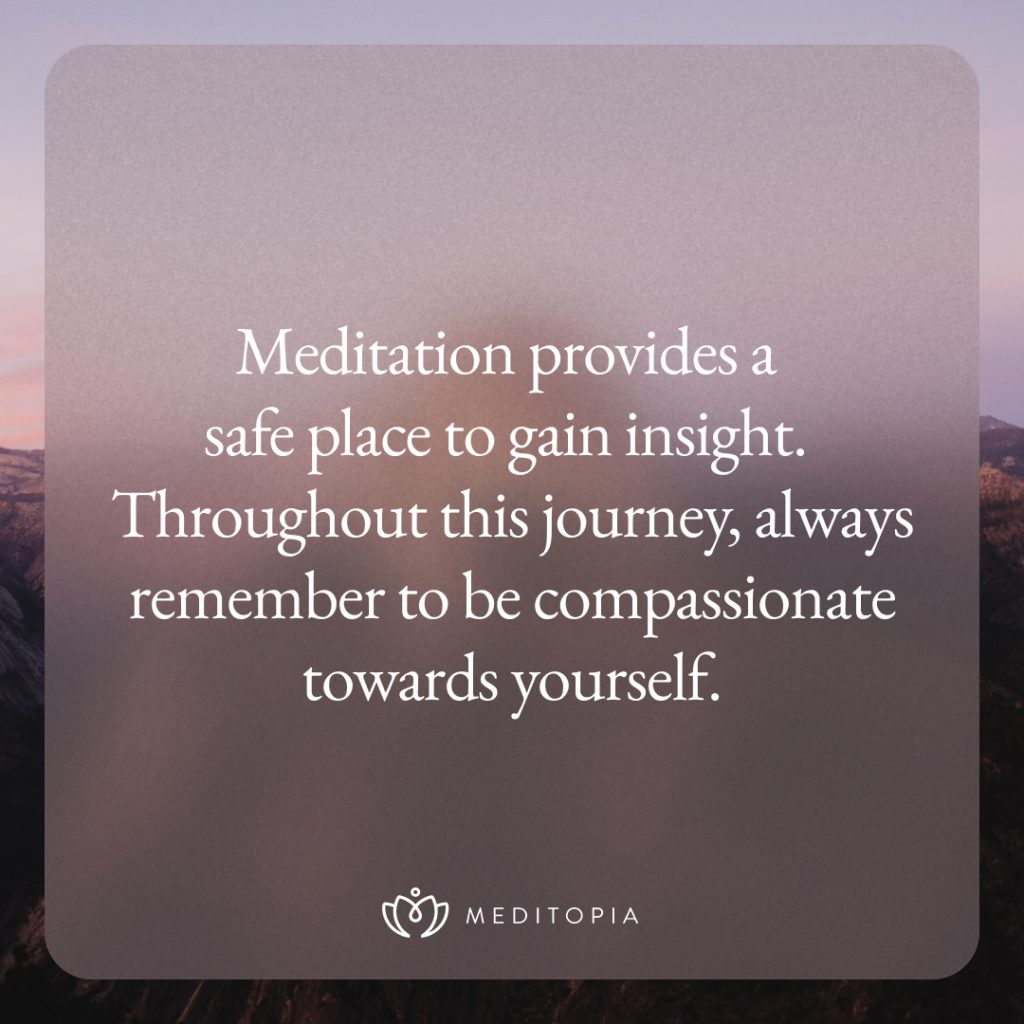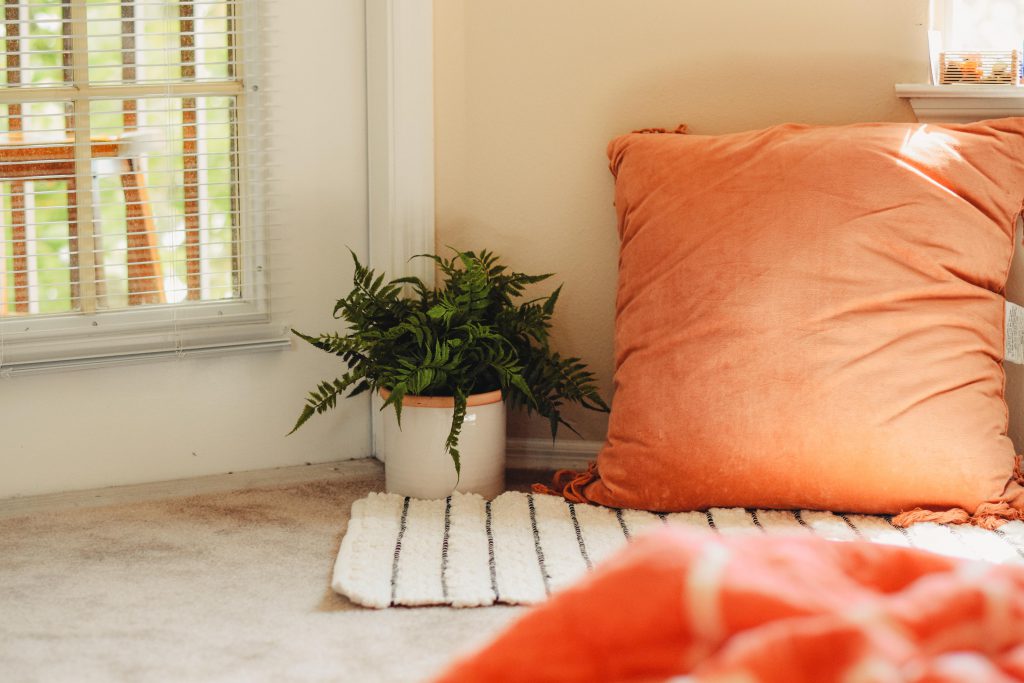Getting the Hang of Meditating

Content
- The Benefits of Regular Meditation
- What’s a habit?
- How do we form a habit?
- 10 Tips to Make Meditation a Habit
- 1. Meditate in the same place, at the same time
- 2. Reward yourself
- 3. Listen to your own needs
- 4. Remind yourself that you can do challenging things
- 5. Change the “all-or-nothing” perspective
- 6. Focus on your “why”
- 7. Take steps to make meditation part of your everyday
- 8. Start small
- 9. Start with guided meditations
- 10. Make use of your past experiences
So, what’s meditation? In short, it’s a mindfulness practice that strengthens our ability to be present in the moment by focusing on the sensations within our body, an object, or an activity. Through meditation, we can establish stronger and more profound relationships with the people in our lives, sleep more peacefully, and cope better with difficult emotions. By centering ourselves in the present moment, we can begin to seize the day with a calm, clear mind.
The Benefits of Regular Meditation
Science-based research shows that meditation can have countless benefits such as being able to cope with more difficult emotions like stress and anxiety, deepening the connections we have in our relationships, and improving our attention skills. In order to both incorporate and reinforce these positive effects into your life, how often you meditate matters more than how long you devote to each practice session. Even taking a few minutes each day can completely change how we feel and give us that reset we may need.

It’s often true that in order to internalize and improve upon what we learn, we need to put in regular time and effort. Take running, for example. Maybe our goal is to get faster or run farther. But, one run doesn’t necessarily improve our speed or strengthen our endurance if it’s only ever done once in isolation. Rather, we need to train consistently in order to track our progress or deepen our practice. Similarly, a single meditation practice may ease the stress, anxiety, or anger you’re experiencing in that moment and it may elevate your mood, but these effects will likely be short-lived. The positive effects of meditation become most visible in our lives through regular practice.
In addition, establishing a routine can provide a sense of stability, helping us to stay in touch with ourselves during difficult times or when we’re feeling lost. When you feel like you’re spiralling, routines can provide an anchor, reminding you to return to yourself and the present moment. An activity that motivates you to listen to your needs and to approach yourself with compassion can give you a safe place to rest in difficult times. If you meditatie during times of change and uncertainty, you can create a sense of continuity and ogre that strengthens the connection you have with yourself and the world around you.
What’s a habit?
Cambridge Dictionary defines a habit as, “something that you do often and regularly, sometimes without knowing that you are doing it.” The American Psychological Association (APA) echoes this definition with their own, which describes a habit as, “a well-learned behavior or automatic sequence of behaviors that is relatively situation specific and over time has become motorically reflexive and independent of motivational or cognitive influence.” Essentially, the most common features of a habit are that it’s part of a larger, regular routine and usually performed without any kind of deliberate thought.
How do we form a habit?
Repetition is one of the things to keep in mind when forming a habit. A behavior becomes automatic when repeated in the same contexts over a certain period of time, thereby turning into a habit. According to a study, this period of repetition can vary from 18 to 254 days, depending on the person. So, it’s a unique journey for each of us. And since it’s different for everyone, it’s okay if it takes a bit longer than you expect. It’s a process, so if it doesn’t immediately click for you, don’t beat yourself up. These things can take time. Be gentle with yourself.

Habits can have several different behavioral, cognitive, and neurological components. Therefore, the habits of reaching for your phone first thing every morning and smoking are different from each other. Smoking cigarettes can lead to a habit or even an addiction and it occurs through a different path in the brain than one that is purely behavioral like reaching for our phones due to the nicotine. Today, we’re going to focus on the behavioral aspect of habits, along with some tips that can help you build a habit of meditation.
So, it’s kind of a simple equation when you think about it. If you repeat it enough, meditation can become a habit. But, getting started can be the trickiest part. When you have a behavior that’s not an established habit, it can be easier to set it aside and forget it entirely. We often always have an excuse to discourage ourselves when trying to establish a new routine. Unfortunately, our minds can be very creative when it comes to rationalizing why we can’t do something. We might say to ourselves things like: “I don’t have the time,” or, “I have to prepare for a very important presentation, I just can’t find a quiet place…” Through noticing and accepting this reluctance, we can begin to develop methods that will enable regular meditation. So, how do we do this? Let’s dive in together…
10 Tips to Make Meditation a Habit
1. Meditate in the same place, at the same time
It’s essential that the behavior we want to make into a habit takes place within the same contexts. Therefore, meditating at the same time of the day, in the same position (in a corner you’ve dedicated to meditation if possible, and if not, on your bed, in a chair, or on the floor) will help your mind adopt and maintain this behavior. Once it’s part of your everyday routine, you’ll find dropping into the habit easier and easier.

2. Reward yourself
One of the easiest and most enjoyable things you can do to stay motivated is to reward yourself. We’re generally more likely to repeat a behavior when we feel that sense of accomplishment through a reward or treat. So maybe you give yourself a small gift after each meditation. These can be things like making your favorite cup of coffee, or eating your favorite snack, watching an episode of your favorite show, or giving yourself something you really love. Another thing that you can do is focus on the pleasant feelings that arise after meditating as a different kind of internal reward. You can be motivated by the pleasant feelings that meditation itself evokes within you and the positive effects it has on your life. Next time, remembering how you benefit from this experience will definitely increase your desire to meditate again.
3. Listen to your own needs
Observing yourself and listening to your own needs during the process of forming a habit will help you identify the factors that could strengthen or weaken your motivation to continue the practice. When do you feel like meditating? When don’t you? What do you learn about yourself based on the answers to those questions? To track your progress, you can keep a meditation journal and briefly jot down how you feel each day and how your practice went. You can look back at what you wrote as a way to motivate yourself to continue meditating whenever you don’t feel like it. Even if you’re not very keen on meditating some days, you may still want to meditate for the sake of not leaving a page blank, and that can act as additional motivation.
4. Remind yourself that you can do challenging things
We may actually be reluctant to meditate when we need it the most. In difficult times, we reach for more comfortable and familiar options to find relief. Maybe we give into the impulse to numb ourselves or run away from our problems or challenging emotions. Clarissa Pinkola Estés captures this situation quite well in her book called Women Who Run with the Wolves, saying, “Breathing makes us feel emotions, and when we don’t want to feel them, we hold our breath.” From time to time, it can be difficult to get in touch with our emotions and move past the judgments we may hold in our minds. Through mindfulness and self-compassion practices, we’re better equipped to find patience and accept these more difficult periods as they are, while still having the energy to do our best to attend to our own needs. So, it’s okay to lean into those feelings of reluctancy and hold space for the fact that this can be difficult at times. You can do challenging things.
5. Change the “all-or-nothing” perspective
“What’s the point of continuing if you haven’t gone all-in with it?” This all-or-nothing approach can be easy to fall into where we begin to expect everything to go perfectly even before we’ve really begun. And then we find ourselves in a spiral of self-criticism, saying that if we’re not great at meditating from the start then the process is pointless and we’ll give up. We so often forget that learning is a process and we can’t learn without practice. It doesn’t always happen in a straight line, sometimes we’ll practice every day, learning more and more about which kinds of meditations best serve us, and then maybe things come up and we have to shift our schedule around. There are no mistakes in the journey of meditation. It is a journey, after all, not a destination. It’s a practice we can continue to improve upon all of our lives, no matter our level of experience. Any step you take toward a deeper connection with yourself and others is a valuable step, no matter how big or small. Plus, when you incorporate an unfamiliar routine into your life, both your mind and body will naturally resist it at the beginning. When something hasn’t been going the way you wanted, you may lose your enthusiasm and back out. From now on, how about trying again and again with what you’ve got so far, even if your expectations aren’t immediately fulfilled?
6. Focus on your “why”
It gets easier to get the hang of meditation when it starts from a place of heartfelt motivation. The joy you get from meditation increases when you are truly willing and practice it from the bottom of your heart. Goals like feeling good, understanding yourself better, living life to the fullest by being present in the moment, relieving stress, anxiety, or anger, can all help you stay motivated and keep up with your practice. So, don’t start meditation just because the people influencing you are meditating or because experts say it’s good for your health. Why do you want to pursue meditation? Take a moment to reflect on that question. This way, when you question why you’re meditating, you’ll be able to return to your original motivators and continue on.
7. Take steps to make meditation part of your everyday
Give yourself a moment to pause and take inventory of your day. When could you find time to meditate? Remember, your practice doesn’t have to be long and even a few minutes a day can have a major impact. Maybe you try to meditate right when you wake up in the morning, or just before bed, or during your lunch break, or at your desk at work, on a walk in the park… Each moment you practice is an opportunity to observe and get to know yourself better in other areas of your life. For example, if morning meditation is not your cup of tea, you’d begin to notice that and could then try meditating in the later hours of the day. If you have a lifestyle that requires you to travel frequently, you can try meditating outside your home or on your commute. When you finally establish a routine that you can maintain on trips, at work, and on vacation, you can maintain your meditation habit for longer and longer.

8. Start small
Setting yourself goals that are small and short-term can make it easier to form a regular meditation habit since they’re often more attainable. Instead of saying, “I’ll meditate at least fifteen minutes every day,” you can go with something like, “Today I want to take time to listen to my own needs, even if it’s just for a few minutes.” It’s important not to force it or be too rigid in your goal setting. Take your time and just try your best. You don’t want to bite off more than you can chew in the beginning and end up quitting altogether. It’s kind of like reading. You may tell yourself you’re going to read 50 pages a day, but sometimes that’s just not realistic. You may have a lot on your plate that day or don’t have enough time but maybe you read three lines and put it aside. And the next day you might find more time to yourself, and boom – you’re halfway through the book. The same goes for meditation. We can’t expect the same thing from each day. If you continue to remind yourself of this while trying to form any habit, the feelings of guilt and inadequacy that crop up when you don’t meet your daily goals will decrease.
9. Start with guided meditations
Sometimes, when we’re trying something new to us, we need a little bit of guidance. Maybe you’re finding it difficult to center your mind in the present moment, especially if meditating is brand new to your or you haven’t practiced in a long time. When it doesn’t seem possible for you to sit quietly and observe your mind in the moment, you can practice with guided meditations. During meditation, you may encounter thoughts and feelings rising to the surface that you weren’t aware of before and sometimes it’s difficult to accept these emotions. At such moments, the guidance of a compassionate voice can help you find your way.
10. Make use of your past experiences
Think of something you’ve made a habit of in the past. How did that process go for you? One of the most realistic resources to guide you through forming a new habit is taking a look at your past habit-forming experiences. What were the things that made you say, “I’m glad I did it!” For example, looking back, was there anything you’d do differently? What advice would you give a close friend who’s trying to form a habit? We often have the clues that would help us form and maintain habits because we know ourselves the best. As you recall your experiences, ways to get into the habit of meditation may automatically appear. And when you blend them together with the suggestions above, things will get so much easier.
Translator: Ebru Peközer

